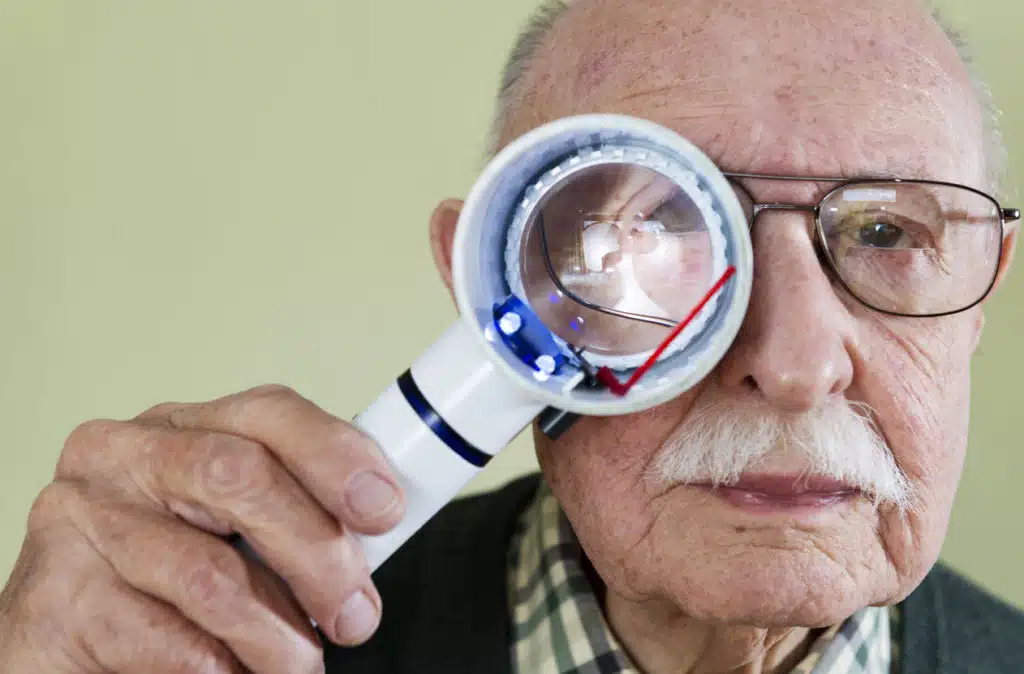
Wet macular degeneration causes blurred central vision in people who are age 60 or older. It is one of the most common causes of vision loss in late adulthood. There is currently no cure for this eye disease, therefore prevention is very important. If you are concerned about your eye health, learn the factors that can increase your risk for the disease and talk to a doctor for prevention steps you can take.
Here are 5 ways to reduce the risk of wet macular degeneration.
#1 Quit Smoking
People who smoke are twice as likely to have wet macular degeneration. The toxins found in cigarettes cause cellular damage, affect nutrients necessary for the retina, and accelerate the development of the disease. If you are already at risk for wet macular degeneration due to your family history, quitting smoking is one of the best decisions you can make to protect your eyes. For lifelong smokers, quitting smoking can still reduce your risk for wet macular degeneration.
#2 Eat Green, Leafy Vegetables
Oxidation can affect the health of your retina. By increasing your intake of antioxidant-rich foods, you can fight off free radicals that can cause the breakdown of the retina. Green, leafy vegetables, such as broccoli, bok choy, cabbage, kale, lettuce, and spinach, are rich in antioxidants and protect against cellular damage.
#3 Wear Protective Sunglasses
Repeated UV light exposure can damage the retina. Wear sunglasses that block 100 percent of UVA and UVB light whenever you are out in daylight. Look for the label that says the sunglasses provide 99-100 percent UV protection.
#4 Maintain Healthy Blood Pressure
High blood pressure can reduce the amount of oxygen that gets to your eyes and can eventually damage veins. There are many causes of high blood pressure, including being overweight, a diet high in salt, excessive consumption of red meat, and a sedentary lifestyle. Making changes to your diet and becoming more physically active can help you maintain healthy blood pressure. Getting six to eight hours of sleep at night and reducing stress levels also help.
#5 Take Supplements
Lacking essential nutrients for eye health can also increase your risk of not just wet macular degeneration but also other eye diseases. You may not get important things such as beta-carotene, copper, lutein, vitamins C and E, and zinc from your diet, which can help in reducing the risk of wet macular degeneration. Check with your doctor for advice on taking supplements that support eye health. Patients with wet macular degeneration need to be monitored by their eye doctor or ophthalmologist.
Ophthalmologist in Washington, Missouri
Our ophthalmologists at Advanced Sight can provide customized recommendations to reduce your risk of wet macular degeneration and support eye health. The American Academy of Ophthalmology recommends comprehensive eye exams every year beginning at the age of 40. Our doctors also recommend this unless you are at greater risk due to your medical history, family history, or are experiencing eye symptoms.
At our Washington eye center, we can provide for all your eye health and vision needs. To schedule an appointment with an eye doctor, call us today at (636) 239-1650 or use our convenient appointment request form. We look forward to helping you improve your eye health!




